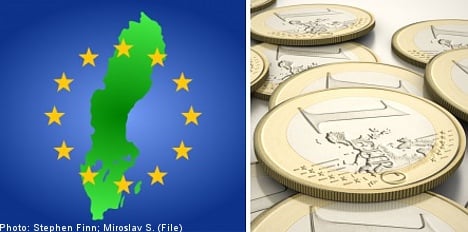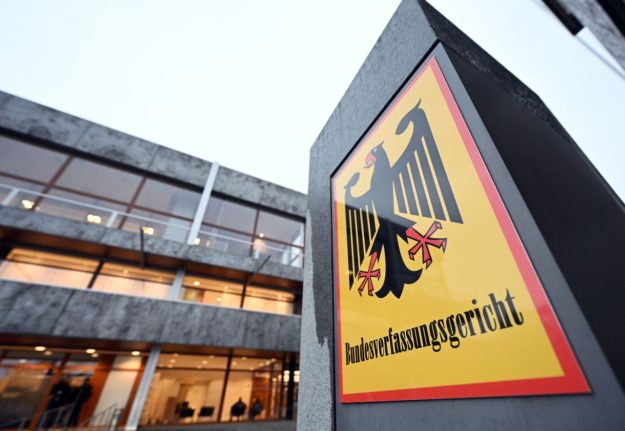The parliament’s EU affairs “committee concluded that the government had support for its position,” committee spokesman Tommy Forsell told AFP, pointing out that this meant Prime Minister Frederik Reinfeldt was free to negotiate terms with Brussels for joining the pact.
With its blessing, the committee formalized the mandate the minority centre-right government received when it reached a deal with the main opposition Social Democrats Thursday, giving it a parliamentary majority.
The government is strongly in favour of the euro pact, but the Social Democrats had long threatened to block Sweden’s support of the pact for fear it was a “back door” into the eurozone.
The Scandinavian country rejected the euro in a 2003 referendum.
While Sweden is not a eurozone member, it has among the strongest public finances in Europe and is therefore seen as an influential player in European efforts to improve financial discipline.
The government and the Social Democrats agreed on four conditions that Sweden will push for at the negotiating table in Brussels next week, including demands that Sweden not be required to transfer any decision-making power on its budget from the national parliament and that Sweden be granted more influence.
The Social Democrats said Thursday that one way Sweden could be guaranteed more influence was by being given a seat at eurozone summits where the pact is up for discussion.
Eurozone versus full EU summits are a sensitive topic for some governments, notably France, which refuses to grant access to the 10 other EU states more than once a year.
During discussions Friday at the EU affairs committee, however, the demand for a seat at the table did not seem set in stone.
“There are other solutions. For instance by helping with preparations (for the summits), by setting exact terms for what can be discussed by euro countries and non-euro countries,” said state secretary Katarina Areskoug Mascarenhas, who was standing in for Reinfeldt, who had the stomach flu.
Social Democratic representative Marie Granlund also conceded that “exactly how the influence should be organised is something we can come back to.”
The so-called fiscal “compact” to tighten budgetary discipline and economic governance between the 17 eurozone nations is one of the main issues on the agenda when leaders of the 27-nation EU meet in Brussels on Monday.
All EU states except Britain have agreed to consider signing the fiscal compact, the aim of which is to avoid a repeat of the debt crisis in the eurozone.
The pact is expected to be agreed in principle on Monday before formal acceptance at an EU summit on March 1 and 2.



 Please whitelist us to continue reading.
Please whitelist us to continue reading.
Member comments